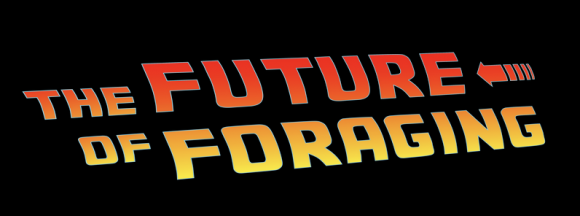Bridging Diverse Perspectives on the Mechanistic Basis of Foraging
The ability to develop and execute adaptive foraging strategies in response to changing, complex environments is an essential tool of survival for many species, from insects to rodents to humans. Interest in the neural basis of foraging and its associated cognitive, sensory, and motor processes has exploded in recent years. As neuroscience moves towards an increasingly integrated understanding of brain function, studying ethologically relevant foraging behaviors offers an important opportunity for progress. However, gaining a mechanistic understanding of diverse foraging behaviors and their neural underpinnings requires collaboration across disciplines including systems neuroscience, cognitive science, ethology, ecology, and theory. This conference aims to foster intellectual exchange across these disciplines by bringing together some of the brightest minds excited about the neural basis of foraging to address three key questions:
- Is it possible to establish mechanistic principles of foraging that are shared across species?
- How can the study of foraging contribute to our understanding of cognitive or sensory processes in the brain?
- What key questions and knowledge gaps should drive the future direction of foraging research?
Through a combination of talks, panel discussions, and poster presentations we hope to bridge diverse perspectives and work towards a roadmap for this emerging field.
Janelia will cover lodging and meals for all participants, and travel support is available to those in need (please indicate need in that portion of the application). Participants are expected to stay for the duration of the workshop and will also have an opportunity to extend their stay for continued discussion and collaborative time.
The meeting will begin at 6pm ET on the first day and end by 1pm ET on the last.
Applications are closed
Please note: Because Janelia conferences are intentionally small and selective, we may not be able to accommodate all applicants. We strive for as broad a representation across labs as possible and therefore may limit participation to one person per group. Preference is given to applicants who are active researchers in the field and intend to present their work as a poster or selected talk.
Organizers
Laura Grima, Janelia Research Campus/HHMI
Hannah Haberkern, University of Würzburg
Rishika Mohanta, Rockefeller University
Mai Morimoto, Queen Mary University of London
Adithya Rajagopalan, New York University
Emma Scholey, University of Birmingham
Invited Participants
Matthew Apps, University of Birmingham
Dmitriy Aronov, Zuckerman Institute, Columbia University
Ethan Bromberg-Martin, Washington University School of Medicine
Jeremiah Cohen, Allen Institute
Nathaniel Daw, Princeton University
Emily Dennis, Janelia Research Campus/HHMI
Ahmed El Hady, Max Planck Institute for Animal Behavior
Ingrid Fetter Pruneda, Universidad Nacional Autónoma de México (UNAM)
Nora Harhen, University of California, Irvine
Benjamin Hayden, Baylor College of Medicine
Ann Hermundstad, Janelia Research Campus/HHMI
Alex Kacelnik, University of Oxford
Alexander Lloyd, University College London
Yonatan Loewenstein, Hebrew University of Jerusalem
Matthieu Louis, University of California, Santa Barbara
Shannon Olsson, echo network/Danish Academy of Technical Sciences
Jacqueline Scholl, Lyon Neuroscience Research Centre
Leslie Vosshall, HHMI & Rockefeller University
Mark Walton, University of Oxford
Nilay Yapici, Cornell University
Stay Updated
Sign up to receive periodic updates and announcements about Janelia’s programs and events, including conferences and workshops, public lectures, educational and career opportunities, and more.
Check out the Future of Foraging virtual seminar series!


